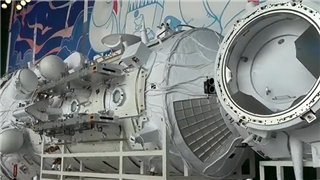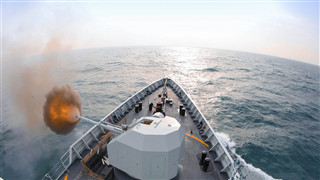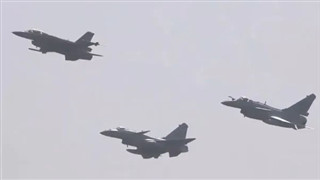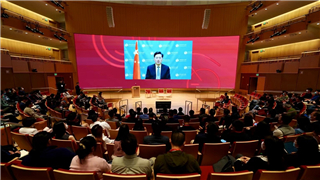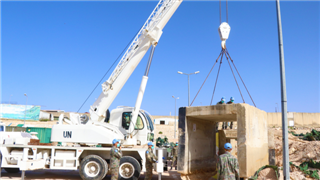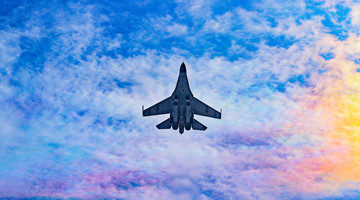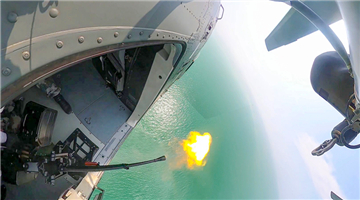By Zhang Jiahui
Australian Defense Minister Peter Dutton recently announced that the country would spend AUD 3.5 billion upgrading equipment for the Australian Defense Force (ADF), including accelerating the procurement of new-type weapons and building military industrial companies, The Australian reported. He also said in an interview that the nuclear powered submarine purchased from the US and the UK according to their AUKUS agreement – the security pact among the three countries – is likely to arrive in Australia earlier than expected, and the first one is anticipated to enter the water at the end of 2030s. Some experts called Australia’s current military move “excessive expansion”, which may trigger an arms race and aggravate regional tension.
Frequent military enhancements
Australia has been upgrading its military equipment for quite some time on the excuse of “threats from major countries”. According to an overview of foreign media reports, on March 7, Australian Prime Minister Morrison announced an investment of at least AUD 10 billion to build a base for the nuclear submarines bought from Washington and London; on March 10, the ADF launched an AUD 38 billion reinforcement plan that will swell its ranks by 30% to about 80,000 troops by 2040, the most drastic military expansion for the country in nearly 40 years; on March 22, the Australian Defense Space Command officially came online, which Dutton said was a “necessary endeavor with a view to protecting our national interests and our need for a Space Force in the future ”.
ABC News also reported that the US, UK and Australia issued a joint statement on April 5 claiming to work collaboratively on hypersonic, counter-hypersonic and electronic warfare capabilities, expand information sharing, and deepen the cooperation on defense innovations.
Aiming at multiple purposes
Guo Chunmei, associate researcher and the assistant to the director of the Institute of Southeast Asian and Oceanian Studies, China Institutes of Contemporary International Relations, analyzed that moves of the AUKUS parties to expand the military and develop military industrial enterprises indicate that the US and the UK will lead the way in Australia’s military upgrade.
On the one hand, Canberra will hold a federal election in May. The Morrison administration’s constant moves on the defense field at such a moment are intended to win votes by hyping up the topic of national security and diverting domestic attention from the economic and social woes at home.
On the other hand, as one of America’s “staunch” allies, Australia is serving the US agenda by spending a staggering amount of money buying weapons and equipment from Washington, so as to share the cost of America’s military expansion and assist in its Indo-Pacific strategic deployments.
Exacerbating regional tension
According to media reports, Australia’s defense expenditure now accounts for more than 2% of its GDP, which meets what America asks of NATO members. In the meantime, Indonesia, which is at odds with Australia, has bought A400M strategic transport planes and Rafale fighter jets successively.
According to Guo Chunmei, Australia's picking sides so quickly has eroded the impression it leaves with the surrounding countries and laid waste to its efforts in previous decades to merge with Asia. Meanwhile, its growing military strike capabilities have also disgruntled Southeast Asia countries and even America's other allies in the Indo-Pacific region, not only exerting adverse effects on regional tension and further fomenting the arms race, but will also escalate hostility and anxiety. In a nutshell, Canberra has deviated from its duty of preserving national and regional peace and stability.
"Underlying Australia's wielding of the ideological banner is the Cold War mentality. The country has become a cat's paw in America’s containment of China," said Guo, "the current deadlock in China-Australia relations should be completely attributed to the Australian side. How its economic and trade cooperation with China has suffered provides a bad example for other countries – any country that ruins the relationship with another country for political gains will only end up harming its own long-term development."
Editor's Note: This article is originally published on haiwainet.cn, and is translated from Chinese into English and edited by the China Military Online. The information, ideas or opinions appearing in this article do not necessarily reflect the views of eng.chinamil.com.cn.
